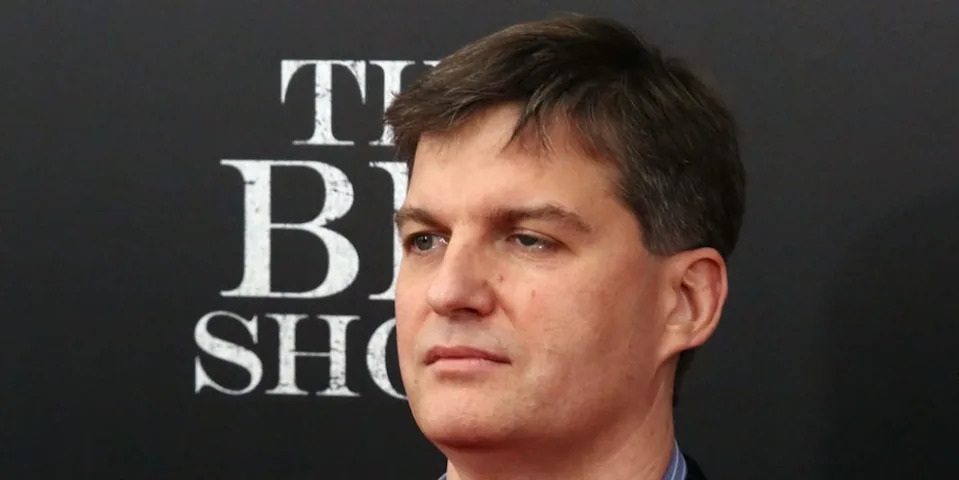'Big Short' investor Michael Burry kept quiet, piled into China tech, and won big with a stock bet in 2024

Michael Burry kept a low profile, plowed money into three Chinese tech giants, and saw a long-standing stock bet pay off in 2024.
Who is Michael Burry?
Burry is best known for predicting and profiting from the collapse of the housing bubble in the mid-2000s. His contrarian wager was immortalized in the book and film "The Big Short."
He's also famous in financial circles for predicting market crashes and recessions, investing in GameStop long before the video-game retailer became a meme stock. He also bet against Elon Musk's Tesla, Cathie Wood's flagship Ark fund, Apple, a microchip fund that included Nvidia, and the S&P 500 and Nasdaq 100 indexes in recent years.
Burry goes by Cassandra B.C. on X — a nod to the priestess in Greek mythology who was cursed to utter true prophecies but never to be believed.
Staying quiet
In years past , Burry frequently shared his thoughts on the markets, economy, and other subjects on Twitter.
For example , in summer 2021, he warned of the "greatest speculative bubble of all time in all things" and told buyers of meme stocks and cryptocurrencies that they were careening toward the "mother of all crashes."
Burry even caught Musk's attention with the Tesla and SpaceX CEO calling him a "broken clock" in late 2021. Moreover, the investor set alarm bells ringing on Wall Street in early 2023 with a one-word post : "Sell."
However, Burry didn't post at all last year and hasn't shared anything with his primary account's 1.4 million followers since April 2023.
Chinese trio
Burry's Scion Asset Management revealed in a first-quarter portfolio update it had boosted its bets on Alibaba and JD.com, two Chinese e-commerce titans. It also established a small position in Baidu, a search giant that's been dubbed the "Chinese Google."
The Scion chief added to both the Alibaba and Baidu positions in the second quarter while paring his JD.com stake, but then ramped up all three wagers in the third quarter.
In the 12 months before September 2024, Scion quadrupled both its Alibaba and JD.com stakes. It went from owning 50,000 Alibaba shares worth $4.4 million to 200,000 shares worth $21.2 million.
It raised its JD.com position from 125,000 shares worth $3.6 million to 500,000 worth $20 million. Starting from scratch, it also amassed 125,000 Baidu shares worth $13.2 million in the nine months before this past September.
Those three stocks accounted for 65% of the total $83 million value of Scion's portfolio, excluding options, at the end of September. Burry hedged his highly concentrated portfolio by purchasing put options against the three stocks with a notional value of $47 million in the third quarter.
Burry, a value investor who hunts for bargains, may have pounced on the trio because he views them as undervalued. Chinese stocks have been hit by regulatory threats, concerns about the country's slowing economy and real-estate crisis, rising geopolitical jitters, and skepticism about the government's stimulus plans.
It's worth noting that quarterly portfolio filings only paint a partial picture of an investor's holdings. They exclude shares sold short, private investments, foreign-listed stocks, and non-stock assets like bonds and real estate. They're also only a snapshot of the portfolio on a single day in a three-month period.
Patience pays off
Apart from Alibaba and JD.com, the only stock that Scion held onto for all of 2024 was The RealReal, an online luxury-goods marketplace.
The stock has featured in Scion's portfolio since the first quarter of 2023, when the firm owned 684,000 shares worth about $862,000, or $1.26 each.
Scion still owned 500,000 shares at the end of September, worth nearly $1.6 million at that time. The stock has jumped from a little over $3 then to $8.73 at Wednesday's close.
The upshot is Burry has likely made several times his money on The RealReal, especially if he was still holding the stock when it surged last quarter.
Read the original article on Business Insider

